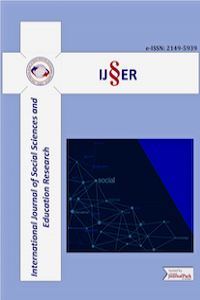An insight into professional identities of Turkish EFL instructors
Professional identity constitutes a central concept for the teaching profession. Due to their enormous impact on the learners as well as on the whole process of learning and teaching, professional identities of teachers are worth being researched especially in the field of foreign language education where teachers’ identities are also influenced by the linguistic and cultural aspects of a foreign language. Departing from the constituents of teachers’ professional identity, this study aimed to investigate the professional identities of Turkish EFL instructors. The study was conducted at a major state university in Turkey in the fall term of 2015-2016 academic year. Data were collected from a total of 32 Turkish EFL instructors (28 female; 4 male). A questionnaire developed by the researcher based on the theoretical framework and expert opinion was administered to the instructors. The gathered data were subjected to statistical analyses. The results revealed that the participant instructors have highly developed professional identities. Among the dimensions of professional identity, pedagogical expertise was reported to be the most developed, followed by didactic expertise, subject matter expertise and continuation of professional development respectively. The study found no significant difference between the levels of development of professional identities based on the instructors’ undergraduate area of study, latest graduation degree and teaching experience. As the present study showed that the instructors have well-developed professional identities by means of self-report data, further studies may investigate to what extent these perceptions reflect their actual professional identities and the way these identities affect the teaching practices.
